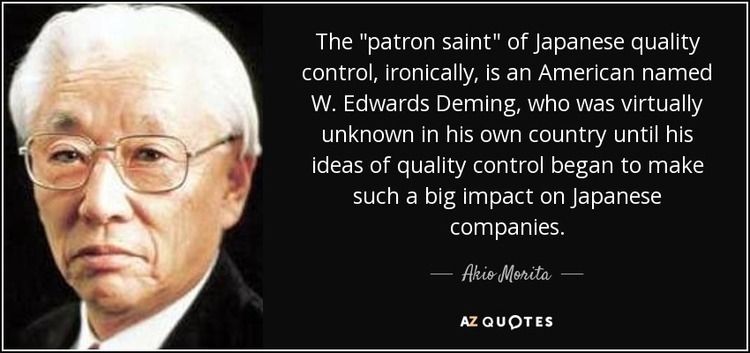
Introduction
Japan is renowned for its commitment to perfection in product creation, and this is attributed to the Japanese concept of quality control. The pursuit of defect-free products has been deeply ingrained in Japanese corporate culture for decades. This article explores the four fundamental points that promote quality control consciousness in Japan, highlighting how Japanese companies recognize the importance of defect-free production, the role of corporate culture, leadership, and how Japanese culture itself plays a pivotal role in ensuring quality production.
Importance of Defect-Free Product Creation and Measures for Zero Defect Production Policy
The Japanese approach to quality control is characterized by an unyielding commitment to perfection. Recognizing the significance of defect-free product creation, Japanese companies go to great lengths to prevent human-caused defects from occurring. To achieve this, they employ several measures:
a. Continuous Improvement and Kaizen: The Japanese philosophy of Kaizen emphasizes continuous improvement, where even the smallest inefficiencies are identified and corrected. Employees at all levels are encouraged to actively participate in this process, making it easier to identify and address potential defects at an early stage.
b. Total Quality Management (TQM): Japanese companies embrace TQM, a comprehensive management approach that prioritizes quality in all aspects of business operations. TQM fosters a culture where each employee is responsible for ensuring quality in their work, reducing the likelihood of human-induced defects.
c. Poka-yoke: Meaning "mistake-proofing" or "error-proofing," Poka-yoke is a technique used to design processes in a way that prevents errors from occurring. By incorporating foolproof mechanisms into the manufacturing process, Japanese companies reduce the risk of defects due to human error.
d. 5S Methodology: Originating from the Japanese words Seiri (Sort), Seiton (Set in Order), Seiso (Shine), Seiketsu (Standardize), and Shitsuke (Sustain), the 5S methodology emphasizes workplace organization and cleanliness. A tidy and organized workplace contributes to enhanced focus and reduced errors.
e. Lean Manufacturing: Japanese companies follow lean principles to optimize production processes and eliminate waste, ultimately reducing the chances of defects caused by human error.
Japanese Corporate Culture and the History of the Quality Movement
Japan's commitment to quality control can be traced back to the post-World War II era. Devastated by the war, Japan realized that the key to rebuilding its economy and global reputation was to excel in manufacturing and produce high-quality goods. This realization laid the foundation for the quality movement in Japan.
a. Deming's Influence: The renowned quality expert, Dr. W. Edwards Deming, played a pivotal role in shaping Japan's quality movement. His teachings on statistical process control and continuous improvement greatly influenced Japanese manufacturers, encouraging them to focus on quality as a primary competitive advantage.
b. Collectivist Culture: Japanese society places great emphasis on collective effort and team spirit. This cultural aspect fosters cooperation among employees and reinforces the notion that every individual's contribution is vital to ensuring the overall quality of the product.
c. Long-term Orientation: Japanese corporate culture is characterized by a long-term orientation, prioritizing sustainable growth over short-term gains. This approach encourages companies to invest in quality control measures, knowing that it will yield benefits in the long run.
The Role of Japanese Leadership in Promoting Quality Control
Japanese leadership plays a crucial role in promoting quality control and the zero defect policy. Leaders in Japanese companies often lead by example, setting high standards and expectations for their employees.
a. Transformational Leadership: Japanese leaders adopt a transformational leadership style, inspiring their teams to aim for excellence. They actively participate in the quality improvement process, motivating employees to take ownership of their work and strive for defect-free outcomes.
b. Quality Circles: Japanese companies encourage the formation of quality circles, small groups of employees from different departments who come together to identify and resolve quality-related issues. This participative approach empowers employees, giving them a sense of responsibility towards achieving the zero defect policy.
c. Employee Empowerment: Japanese leaders believe in empowering their workforce. They create an environment where employees feel valued and trusted, leading to increased job satisfaction and a higher commitment to quality.
The Role of Japanese Culture in Ensuring Quality Production
Japanese culture deeply influences the way quality control is embraced and executed in the country.
a. Attention to Detail: Japanese culture places a strong emphasis on precision and attention to detail. This cultural trait is reflected in the commitment to quality at every stage of production, leaving no room for errors.
b. Honesty and Integrity: Integrity and honesty are highly valued in Japanese culture. This fosters a strong sense of responsibility and accountability among employees, motivating them to ensure the quality of their work.
c. Continuous Learning: Japanese culture encourages lifelong learning and improvement. This mindset is mirrored in the pursuit of continuous improvement in processes and products, striving for perfection even in the face of already high-quality standards.
Conclusion
The Japanese concept of quality control revolves around the pursuit of perfection and the prevention of defects caused by humans. The four points discussed highlight the importance of defect-free production, the role of Japanese corporate culture, leadership, and cultural aspects in ensuring quality production. By embracing a zero defect policy, Japanese companies have demonstrated their commitment to delivering products of exceptional quality, contributing to their global reputation for excellence and reliability.





